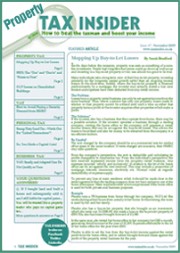Before you go, sign up to our free tax saving email course. Get 7 top property tax saving strategies in your email inbox that will help you save thousands in tax. Unsubscribe any time.
 An interesting point from the recent Budget focuses on the useful ability to claim ‘post cessation’ property income tax relief for losses. In addition, there is consideration for agricultural property income tax loss relief. Perhaps not everyone was aware that these losses can be offset. An interesting point from the recent Budget focuses on the useful ability to claim ‘post cessation’ property income tax relief for losses. In addition, there is consideration for agricultural property income tax loss relief. Perhaps not everyone was aware that these losses can be offset.
Agricultural Property Loss Relief
This is in addition to the existing restriction imposed on “uncommercial agricultural expenses”, i.e. where the letting arrangements are not on normal market value terms.
Post-Cessation Trade or Property Relief
‘Qualifying payments’ are defined (in ITA 2007, s 97) broadly as payments made in remedying, or by way of damages for: defective work; legal and professional fees incurred in defending claims about defective work; payments for insuring against claims for defective work; and the costs of collecting trade debts.
‘Qualifying events’ are defined (in ITA 2007, s 98) broadly as the release of a trade debt under a statutory insolvency arrangement and a trade debt proving to be bad. A qualifying event occurs when the debt is released or the debt proves to be bad. There are rules (in ITA 2007, ss 99, 100) that reduce the relief for unpaid trade expenses and where relief is given, or available, under any other provisions of the Income Tax Acts.
Further legislation (ITA 2007, s 101) allows a person who cannot deduct all of an amount claimed for post-cessation trade relief to treat the unused part as an allowable loss for capital gains tax purposes.
What’s Changing? The Finance Bill 2012 will amend the legislation to deny agricultural property income tax loss relief and post-cessation property relief for expenses arising, or a payment or an event which is made or occurs, directly or indirectly in consequence of, or in connection with, tax avoidance arrangements, the main purpose of which is the obtaining of a reduction in tax liability as a result of the reliefs. In short, the changes are a direct attack on potential tax avoidance. The amendments apply to expenses arising and payments made, or events occurring, on or after 13 March 2012, except where expenses arise or a payment is made pursuant to an unconditional obligation in a contract made before that date.
TAAR v GAAR The above measure will introduce a ‘targeted anti avoidance rule’ (TAAR) that will prevent post-cessation trade relief from being available where a payment (or event) for which relief is sought arises from relevant tax avoidance arrangements.
Many would ask how this “clamp down” is not covered by the forthcoming GAAR (‘General Anti-Abuse Rule’) also mentioned in the Budget. It is understood that the Government considers that a GAAR targeted at artificial tax avoidance schemes would improve the UK’s ability to tackle tax avoidance, while maintaining the attractiveness of the UK as a location for business investment.
However, the counter argument is that there is a quality team based there and they understand the issues specific to wealthy individuals and can deal with them more effectively and efficiently. The question therefore that has to be asked is should property owners be moved to the HNWU or should they keep below the “radar” and enjoy the benefits that this can confer?
Another part of the Budget that is of interest is that legislation will be introduced with effect from April 2013 to apply a cap on income tax reliefs claimed by individuals. The cap will apply for anyone seeking to claim more than £50,000 in reliefs with the cap at 25% of income (or £50,000 if greater). Draft legislation will be published for consultation in summer 2012. Although details are vague at this stage as to how the cap will apply, it is said to apply to any reliefs which are currently ‘unlimited’. The restriction should exclude pension, enterprise investment scheme (EIS) and venture capital trust (VCT) investments which are already capped. In respect of loss relief, the presumption had been that the legislation will target artificially created losses rather than genuine commercial business losses, however this is still uncertain. Again, detailed review of the legislation will be required to ascertain the scope of the cap. Obviously those planning future loss claims must keep a close eye on the result of the consultation.
Practical Tip : Whether the second ‘A’ of GAAR stands for avoidance, abuse or artificial, the 2012 Budget made it clear where it stands on the ‘three As’ and has brought in specific legislation regarding the offset of post cessation property losses and agricultural expenses. There are also plans to clamp down at a general level.
Everyone should be reviewing their potential and future loss claims in all areas of their tax affairs, including property and the involvement of the HNWU. This is a sample article from the monthly Property Tax Insider magazine. Go here to get your first free issue of Property Tax Insider. |


 Tax Articles
Tax Articles